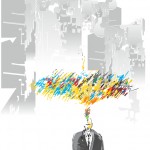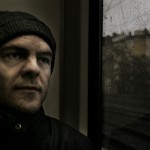Evidence has shown that when exposure and response prevention is done correctly, it has a very high success rate. Unfortunately, there are several common reasons why exposure may have suboptimal effects. These include: Response prevention strategies are not being emphasized. This occurs in cases where mental compulsions have not been
Read more →Exposure and Response Prevention (ERP), like most Cognitive-behavioral treatments, is a time-limited therapy. The objectives of the treatment are to reduce your symptoms and get your life back on track, but also for you to gain the knowledge and learn the skills you need to maintain your gains without a
Read more →Exposure and Response Prevention (ERP) is considered the most effective treatment for OCD. ERP is a specific type of Cognitive Behavioral Therapy (CBT). Standard CBT consists of a number of evidence-based strategies designed to help specific types of symptoms. However, some of these strategies (e.g., relaxation or trying to rationalize/challenge
Read more →It is essential that treatment for OCD follows the evidence-based principles practiced at The Reeds Center. When psychotherapy focuses on understanding the past to explain OCD, it is unlikely that it will help reduce or manage the symptoms effectively. Additionally, when therapy becomes about reassuring and reasoning away intrusive fears
Read more →“Pure-O” or “Pure Obsessional” is a term often found on the web and in parlance with some health care professionals. Historically it was a term that emerged to describe a subset of OCD sufferers who seemed on evaluation to have obsessions (intrusive thoughts, images, and impulses causing distress) but no
Read more →Some sufferers of OCD have read or been told that Exposure and Response Prevention (ERP) isn’t effective if you don’t have any (or very few) behavioral rituals (such as excessive hand washing, checking locks or stoves, touching/tapping/rubbing, etc.). Some clients report having no compulsions, defining themselves as “Pure Obsessional” or
Read more →People with contamination OCD report a wide range of obsessions, including intrusive thoughts about being dirty or poisoned, coming into contact with viruses or other germs, contracting an illness or giving one to another person, or becoming morally contaminated. People with this type of OCD fear contamination for a variety
Read more →Having repetitive, intrusive fears or doubts about sexual orientation is a common, and often misunderstood, form of OCD (it is sometimes referred to as H-OCD). For someone with this theme, obsessions about sexual orientation and the resulting distress often lead to an ever-increasing panicked effort to prove to themselves and
Read more →Scrupulosity refers to a form of OCD in which questions related to morality or religious / spiritual matters become the focus of obsessive fears and compulsive and ritualistic behaviors. Some individuals with OCD find that the ambiguity of religious laws or secular morality generates overwhelming anxiety. Whereas a person without
Read more →Most people have some fear of illness; health-related anxiety, in fact, motivates people to engage in behaviors — such as exercise, eating lower fat foods, and having regular visits with doctors and dentists — that prolong and improve people’s lives. When this fear becomes part of an OCD obsession, however,
Read more →








